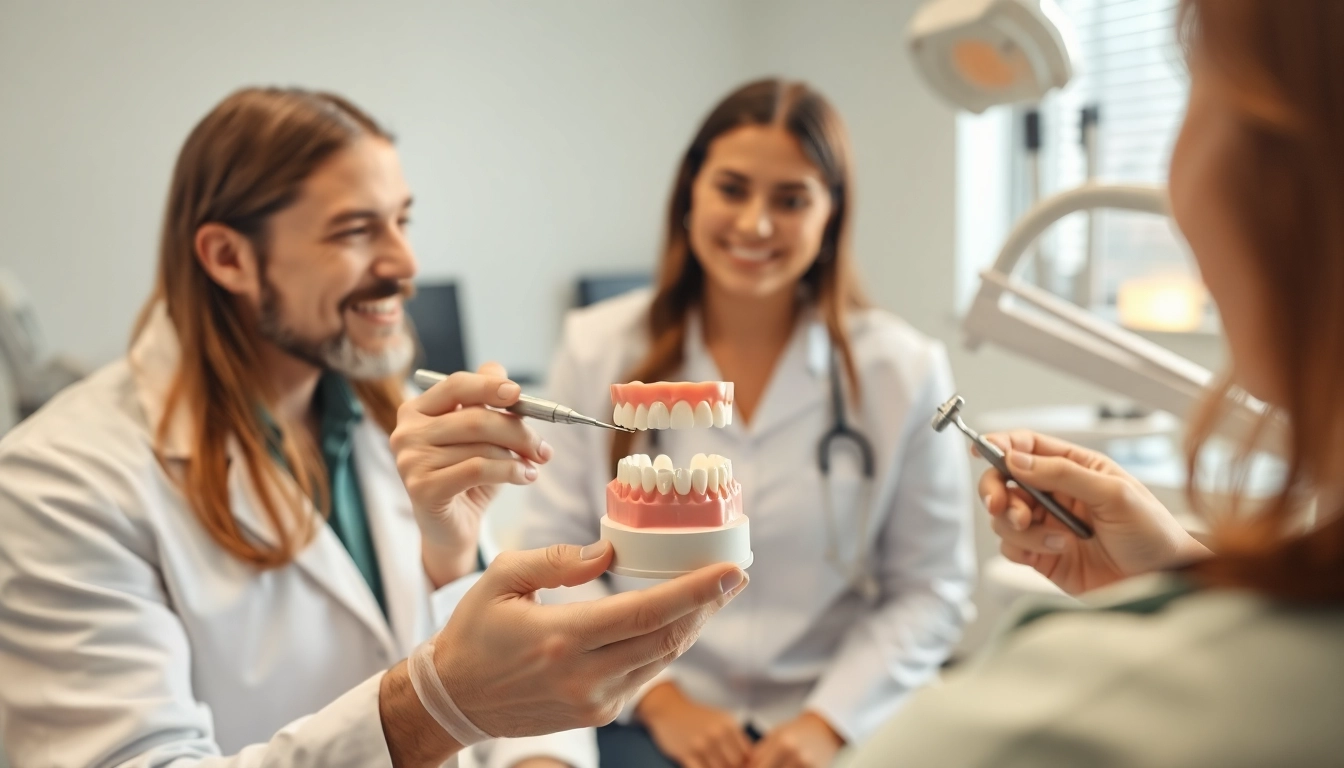The Importance of Dental Cleanings
Dental cleanings are a foundational aspect of oral health, playing a crucial role in preventing disease and preserving your smile. Unfortunately, they are often overlooked or misunderstood, leading many individuals to neglect this essential part of their healthcare regimen. Regular visits for dental cleanings not only encourage optimal oral health but can also significantly reduce the cost of dental care over time by preventing more serious issues from arising.
What Are Dental Cleanings?
Dental cleanings refer to professional oral hygiene procedures performed by a qualified dentist or dental hygienist. During these sessions, the practitioner removes plaque, tartar, and stains from your teeth, primarily addressing areas that are difficult to reach through standard brushing and flossing. While some people might perceive dental cleanings as a mere cosmetic service, they are critical for maintaining overall oral health.
Health Benefits of Routine Cleanings
Routine dental cleanings offer a multitude of health benefits:
- Prevention of Tooth Decay: Regular cleanings help eliminate plaque buildup, which is a clear factor in tooth decay and cavities.
- Gum Disease Prevention: Professional cleanings lower the risk of periodontal disease by preventing the accumulation of tartar, which can lead to gingivitis and periodontitis.
- Bad Breath Management: Cleanings can significantly lessen bad breath caused by accumulated food particles and bacteria in the mouth.
- Comprehensive Oral Health Assessments: Routine visits allow for the ongoing monitoring of your oral health, which can help in the early detection of oral health issues.
- Reduced Risk for Various Conditions: Studies have connected poor oral health to several systemic issues such as heart disease, diabetes, and respiratory diseases. By maintaining clean teeth and gums, you could decrease the risk of such conditions.
Common Myths About Dental Cleanings
Despite the abundance of information available, several myths about dental cleanings persist:
- Myth 1: Dental cleanings are unnecessary if you brush regularly. Fact: While brushing is important, it cannot reach all the areas and effectively remove tartar like professional equipment can.
- Myth 2: Cleanings hurt. Fact: While some discomfort may occur, especially if there’s significant buildup, cleanings are generally painless and quick.
- Myth 3: You only need to see the dentist if you have a problem. Fact: Preventive care is essential; waiting for pain or problems often leads to more severe issues.
Types of Dental Cleanings
Understanding the various types of dental cleanings can help you make informed decisions about your oral health:
Standard Cleaning: What to Expect
A standard cleaning is typically what people think of when they hear “dental cleaning.” This procedure usually includes:
- Initial Oral Examination: The dentist or hygienist inspects your mouth for signs of gum disease, cavities, and overall oral health.
- Scaling: The removal of plaque and tartar from your teeth using specialized tools.
- Polishing: Following scaling, your teeth are polished with a gritty toothpaste to remove surface stains.
- Flossing: The hygienist will floss between your teeth to ensure all areas have been cleaned.
- Fluoride Treatment: Some cleanings may be topped off with a fluoride treatment to help strengthen tooth enamel.
Deep Cleanings Explained
Deep cleanings, also known as scaling and root planing, are more intensive procedures directed at individuals with gum disease. This type of cleaning involves:
- Thorough Scaling: Removal of tartar and bacteria from deep beneath the gum line, which requires specialized instruments.
- Root Planing: Smoothing the surfaces of the teeth roots to promote healing and help the gums reattach to the teeth.
- Possible Anesthesia: Local anesthesia may be used to ensure comfort during the procedure.
Other Specialized Cleanings
In addition to standard and deep cleanings, there are various specialized cleanings for specific conditions:
- Pediatric Cleanings: Tailored to children, focusing on education and gentle techniques.
- Periodontal Cleanings: Designed for patients with advanced gum disease that require special care.
- Cosmetic Cleanings: Aimed at improving the aesthetic appearance of teeth through polishing and stain removal.
The Dental Cleaning Process
The process of dental cleaning can be broken down into several stages that ensure comprehensive care:
Preparation Before the Appointment
Before attending a dental cleaning appointment, it’s essential to:
- Update Medical History: Inform your dentist of any medications or medical conditions that could affect the cleaning process.
- Arrive with Clean Teeth: While this is counterintuitive, brushing your teeth shortly before the appointment can make the process smoother.
- List Concerns: Prepare any questions or concerns you might have regarding your oral health, to ensure they are addressed.
Step-by-Step Cleaning Procedure
The visit generally follows this sequential process:
- Reception and Wait: You will fill out any outstanding paperwork or wait to be called in.
- Initial Check: The dentist or hygienist begins with a visual examination and discusses any concerns.
- Cleaning: Scaling and polishing follows, with a focus on removing all plaque and tartar.
- Post-Cleaning Examination: After the cleaning, the dentist will do another exam to check for cavities or other issues.
- Scheduling Future Appointments: At the end of your visit, you may schedule your next appointment, concurring with the recommended interval.
Aftercare and Maintenance
After a dental cleaning, there are several practices you can follow to maintain your oral health:
- Oral Hygiene Routine: Maintain a diligent routine of brushing and flossing twice a day.
- Hydration: Drink plenty of water to help wash away food particles and bacteria.
- Monitor Your Diet: Avoid sugary or acidic foods and drinks that may contribute to plaque buildup.
- Follow Dentist Recommendations: Adhere strictly to any specific aftercare instructions provided by the dentist.
Choosing the Right Dentist for Your Cleanings
Selecting a dentist for your dental cleanings is a vital decision that affects your long-term oral health. The following factors should guide your choice:
Factors to Consider
When choosing a dentist, consider the following:
- Qualifications: Ensure the dentist is accredited and up-to-date with the latest dental practices.
- Clinic Environment: Look for a welcoming and clean environment that makes you feel comfortable.
- Technological Advancements: A good dental practice utilizes state-of-the-art technology for thorough examinations and treatments.
- Patient Reviews: Research online reviews to gauge other patients’ experiences and satisfaction levels.
Questions to Ask Your Dentist
Before committing to a dental practice, ask the following questions:
- What is the recommended frequency for dental cleanings?
- What types of cleanings do you offer?
- How do you handle insurance and financing options?
- What patient comfort measures do you have in place during cleanings?
Importance of a Good Patient-Dentist Relationship
A positive relationship with your dentist is crucial for effective communication and optimal care. A comfortable environment where you feel heard and respected contributes to better oral health outcomes. Establishing trust with your dentist can also lessen feelings of anxiety and fear associated with dental visits, leading to more regular check-ups and early detection of potential issues.
Maintaining Oral Health Between Cleanings
While regular dental cleanings are important, maintaining good oral health habits between visits is essential:
Daily Oral Hygiene Practices
Developing a thorough daily oral hygiene routine is crucial. Here are steps you should follow:
- Brush Twice Daily: Use fluoride toothpaste and a soft-bristle toothbrush. Brush for at least two minutes.
- Floss Daily: Regular flossing helps remove plaque and food particles from between teeth.
- Use Mouthwash: Antimicrobial mouthwash can help reduce plaque and strengthen enamel.
Dietary Tips for Healthy Teeth
Your diet can significantly impact oral health. To maintain healthy teeth, consider the following tips:
- Limit Sugar Intake: Reduce the consumption of sugary snacks and beverages that can lead to cavities.
- Opt for Nutrient-Rich Foods: Increase your intake of fruits, vegetables, dairy products, and whole grains.
- Stay Hydrated: Drinking plenty of water helps rinse away food particles and promote saliva production, which protects your teeth.
When to Schedule Your Next Cleaning
The frequency of dental cleanings typically depends on your individual oral health needs. Most people should have a cleaning every six months. However, individuals with periodontal disease or a higher risk of cavities may benefit from more frequent cleanings, such as every three to four months. Consult with your dentist regarding your specific schedule to ensure optimal oral health.














Leave a Reply